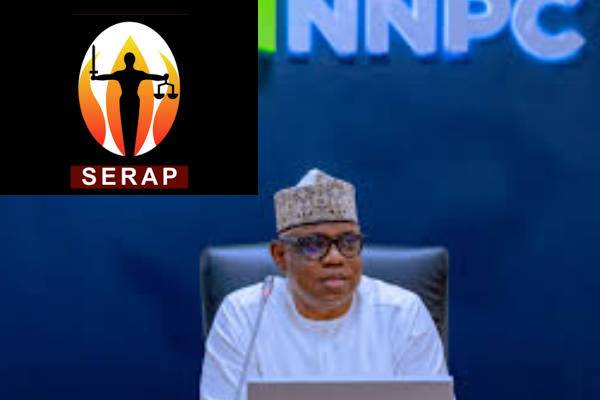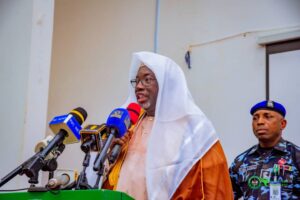The Socio-Economic Rights and Accountability Project (SERAP) has called on Bayo Bashir Ojulari, Group Chief Executive Officer of the Nigerian National Petroleum Company Limited (NNPCL), to account for a reported ₦500 billion shortfall in oil revenue remittance to the Federation Account.
The call follows a recent World Bank disclosure revealing that, between October and December 2024, the NNPCL generated ₦1.1 trillion from crude oil sales and other income but only remitted ₦600 billion.
The remaining ₦500 billion remains allegedly unaccounted for.
In a Freedom of Information request dated 17 May 2025 and signed by SERAP’s Deputy Director, Kolawole Oluwadare, the organisation urged Mr Ojulari to disclose the whereabouts of the missing funds, identify those responsible, and ensure they are surcharged and referred to the Independent Corrupt Practices and Other Related Offences Commission (ICPC) and the Economic and Financial Crimes Commission (EFCC) for investigation and prosecution.
SERAP also called for the immediate involvement of anti-corruption agencies to trace the use of the funds and ensure their full recovery and remittance to the Federation Account.
“There is a legitimate public interest in explaining the whereabouts of the alleged missing ₦500 billion oil money and grave violations of the Nigerian Constitution 1999 [as amended],” the letter stated.
The organisation emphasised that Nigeria’s oil wealth should serve the interests of the population, not be shrouded in opacity. It also accused the NNPCL of withholding constitutionally-mandated allocations to state and local governments, thereby exacerbating the current cost-of-living crisis.
“The missing oil revenue has impeded Nigerians’ ability to enjoy their economic and social rights and denied them access to essential public goods and services,” SERAP said.
It added that had the funds been properly accounted for, the government might have had more resources to alleviate economic hardship through increased public spending.
Quoting relevant legal provisions including the Freedom of Information Act, Section 39 of the Constitution, and international treaties such as the African Charter on Human and Peoples’ Rights, SERAP insisted that Nigerians have a right to know how public resources are managed.





